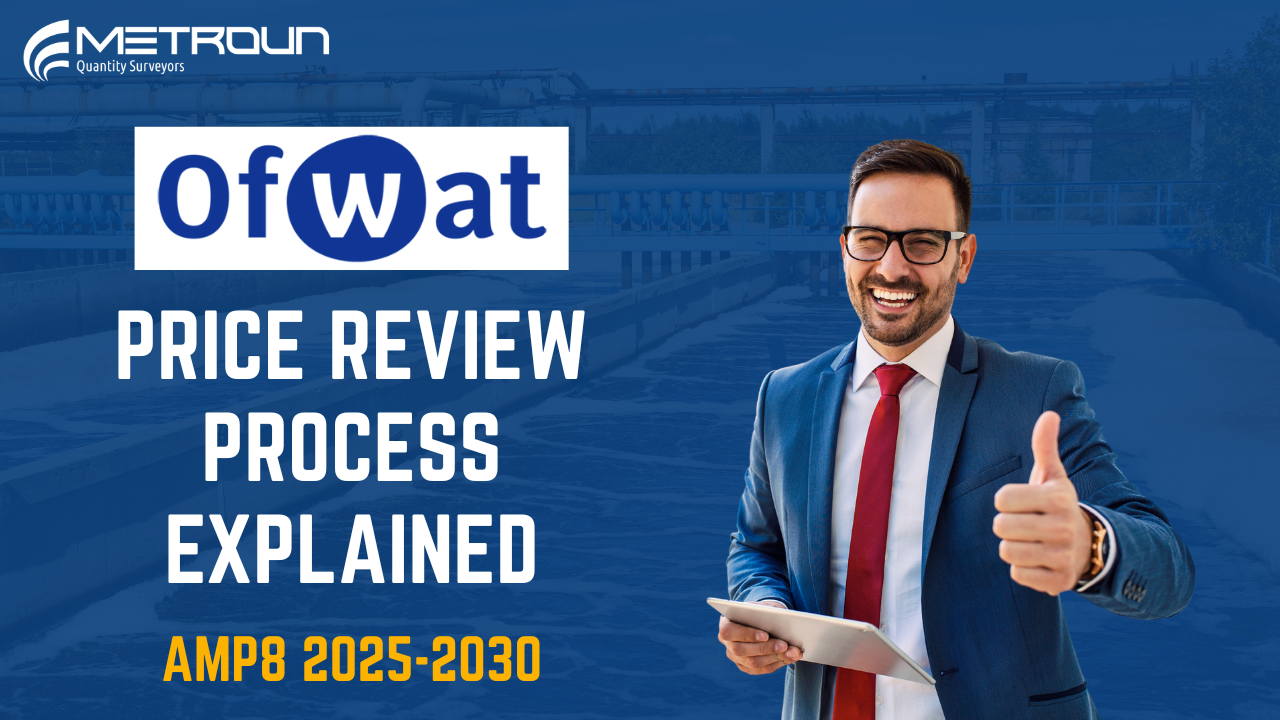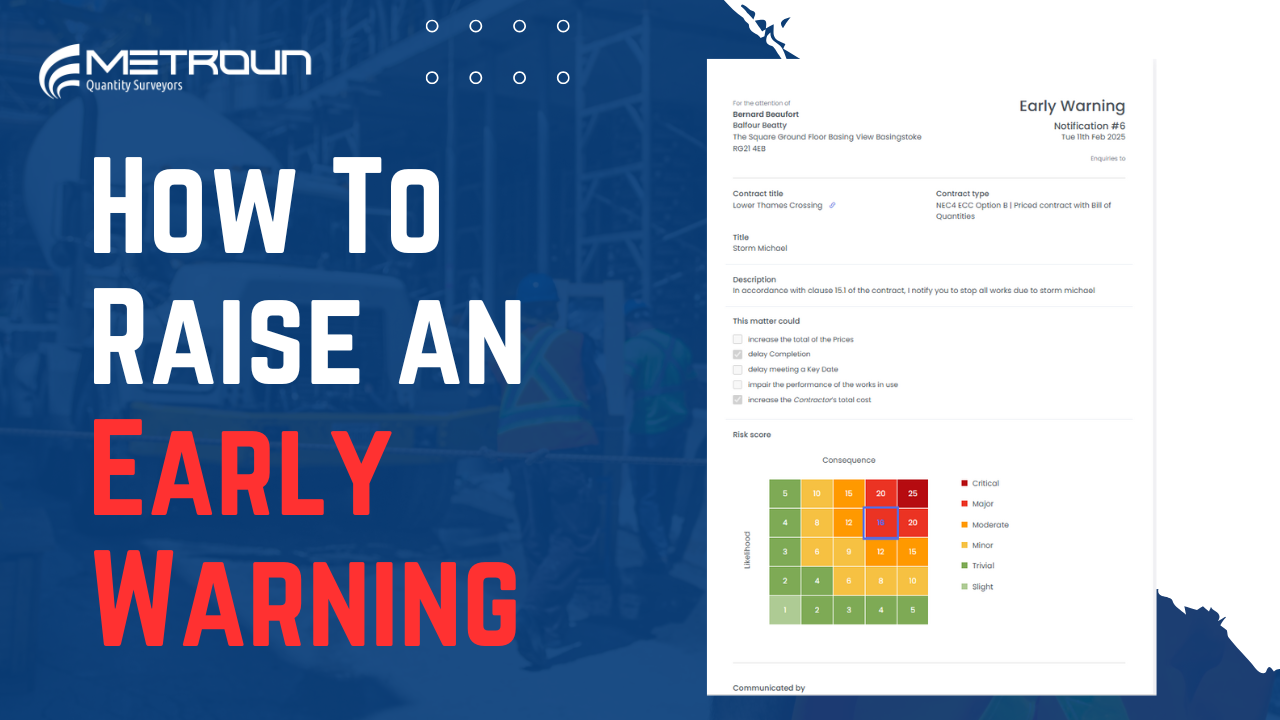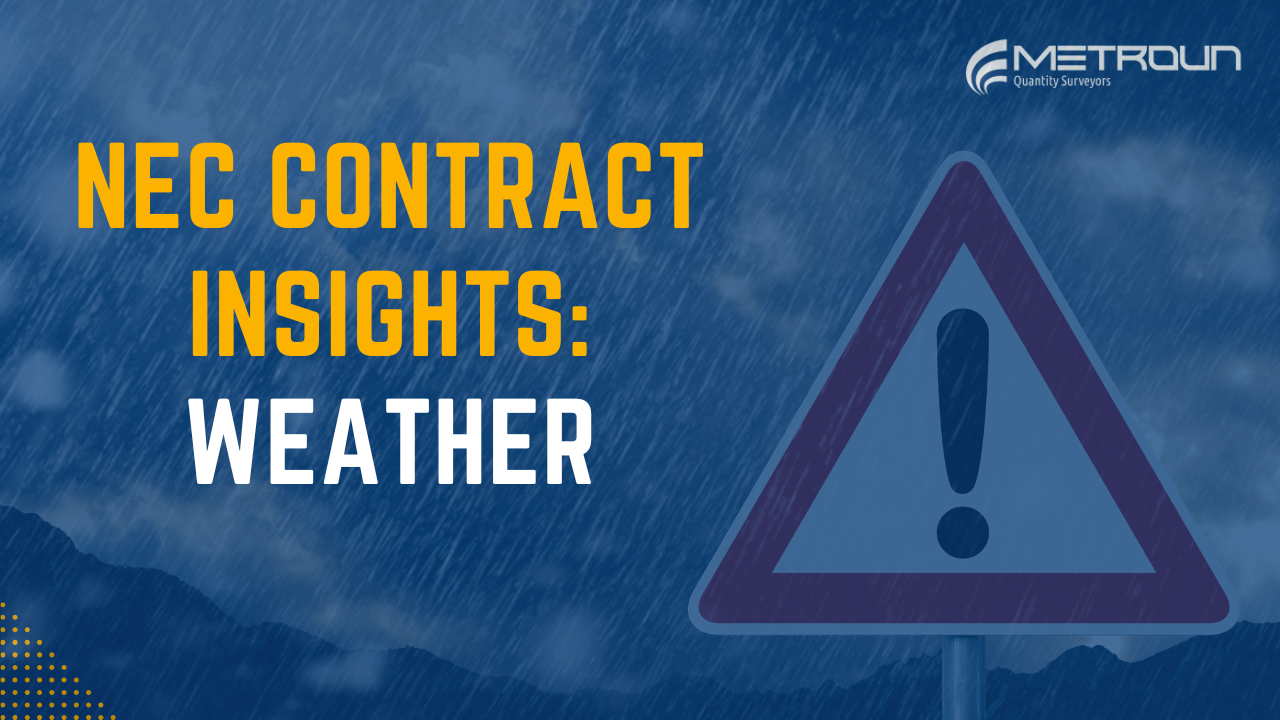In NEC contracts, the Early Warning Notice (EWN) is a fundamental risk management tool that helps parties address potential problems before they escalate. Effective use of early warnings can save time, money, and reduce disputes. This blog post will guide you through the process of raising an early warning under an NEC contract, ensuring compliance with the contract’s requirements.
What Is an Early Warning?
An early warning is a proactive notification raised by either the Project Manager (PM) or Contractor to highlight an issue that could:
- Increase the total of the prices
- Delay completion
- Delay meeting a key date
- Impair the performance of the works in use
Or
- Increase the contractor’s total price
Early warnings are a requirement under clause 15.1 of the NEC4 ECC (or clause 16.1 in NEC3).
Who Can Raise an Early Warning?
Both the contractor and client can raise an EWN if they foresee a potential risk that could affect the contract.
It’s important to remember that EWN’s should be raised as soon as an issue is identified. Failure to do so could result in cost implications and disputes later.
How to Raise an Early Warning
Raising an EWN follows a structured process under the NEC framework:
Step 1. Identify the Issue
Before raising an EWN, consider:
Is the issue likely to impact the project’s cost, time, or quality?
Step 2 Notify the Other Party in Writing
EWN’s must be given in writing, typically using the contract’s communication platform. This is usually through contract management software like we see here or via email depending on project requirements.
The notification should include:
- A clear description of the issue
- How it might affect the project
- The severity of the risk. This can be done through a risk score mechanism
- Suggested solutions or required actions
A typical early warning notification might look like this(Metroun Contract Management Software):

Why Raising Early Warnings Is Essential
- Prevents delays and cost overruns
- Encourages collaboration between parties
- Reduces the risk of disputes
- Ensures contractual compliance
Failing to raise an early warning when required could lead to rejected compensation events later, as the contractor must show they took reasonable steps to mitigate the issue.
Final Thoughts
The Early Warning System is a key feature of NEC contracts that promotes proactive risk management. By raising early warnings effectively, you can protect the project from unnecessary risks and ensure a smoother delivery.
If you’re working on an NEC project, make sure you’re familiar with the EWN process—it could save your project from major issues down the line!
Click here to find out more about Metroun Contract Management.









